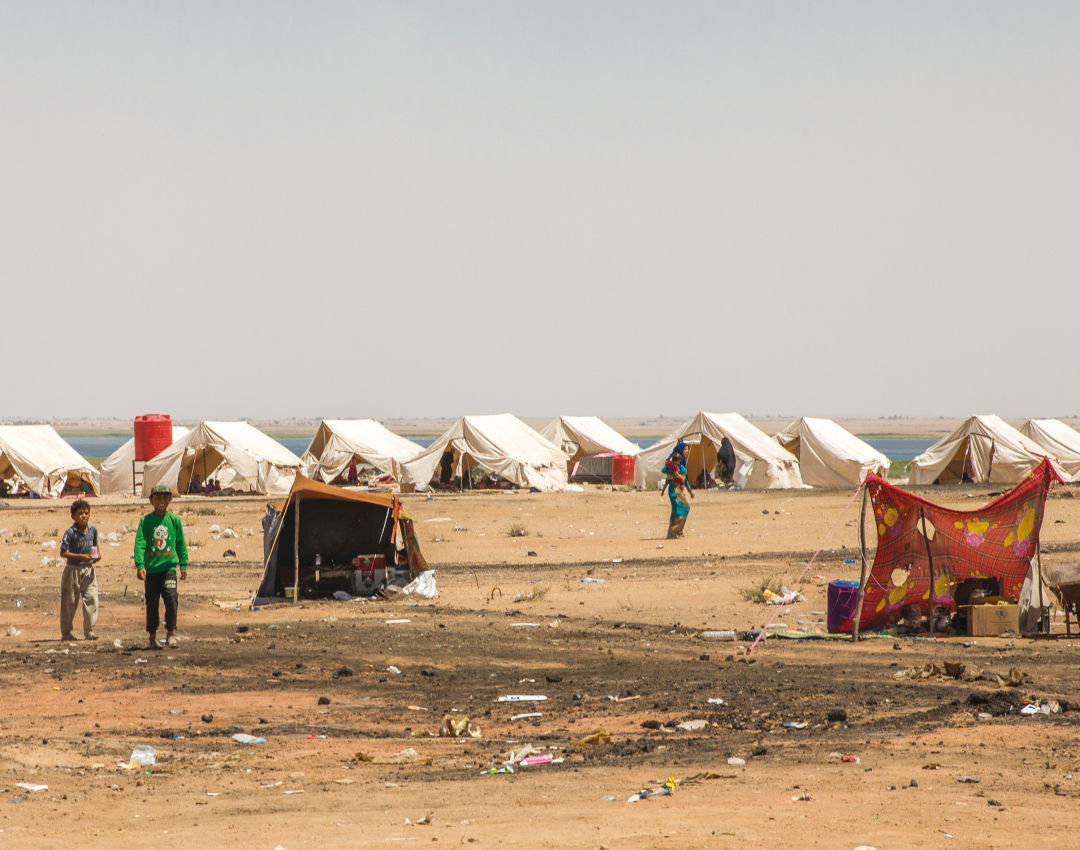The Toughest Part of Getting Aid to Syria Could Be US Politics

A Syrian displacement camp where Mercy Corps provides aid, July 2017
Image: Courtesy Ezra Millstein
With so many end-of-year political surprises in 2018—cabinet turnover, hush payments, a government shutdown—you might forget the one that most shocked Donald Trump’s security advisers: his call for an immediate drawdown of US troops in Syria.
In a minute-long December 19 video, Trump declared (shades of Dubya) that the country’s ISIS occupiers had been crushed. “Our boys, our young women, our men, they’re all coming back,” said 45, grinding his jaw like a steely beat cop. “We won.”
Back in Portland, Trump’s announcement triggered a different sort of teeth-gnashing: from the risk analysts headquartered at the Mercy Corps Action Center on SW First Avenue. Inside this four-story, red-brick building, decisions are made that impact the work of the nonprofit’s 5,000 humanitarian aid workers in more than 40 countries. Data crunched here might, say, result in the rerouting of a convoy of food in Yemen, or determine how to get a medical team into a region stricken with Ebola. In July 2017, Mercy Corps significantly boosted its presence in Syria’s Kurdish-controlled northeastern corner, sourcing food, water, and shelter for some 1.3 million people in need—and navigating the military checkpoints to get that aid into the right hands.
All of which made Trump’s afternoon Twitter video terrible news for Arnaud Quemin, Mercy Corps’s Syria director. Later that day, Quemin told the Washington Post that a sudden US troop withdrawal might force his organization to abandon northeastern Syria altogether.
“It’s just that the presence of the coalition in that part of the country ... keeps the area calm,” Quemin told the Post. “We’re not getting assistance in terms of logistics and safety.”

Kids at a Syrian displacement camp, July 2017
Image: Courtesy Ezra Millstein
It’s not the first time a rapid shift in US foreign policy has threatened to upend Mercy Corps’s logistically tricky, life-saving work. It’s not even a first for the Trump administration—one that, two years in, seems more focused on economic warfare than international peacekeeping.
In August, three months after relocating the American Embassy in Israel to Jerusalem, the Trump administration further underscored its Mideast priorities by cutting $200 million in US Agency for International Development funds allocated to American aid organizations in Gaza. (In this Israeli-blockaded territory, 70 percent of residents depend on emergency aid.)
Without USAID grants, Mercy Corps lost a third of its Gaza and West Bank budget, and laid off 40 percent of its locally hired team. More critically, the cut also meant an abrupt end to Mercy Corps–administered medical care for more than 41,000 Gazans: surgical patients, women being treated for breast cancer, children suffering from anemia and malnutrition.
“It’s a constant for us—it’s something we plan around,” says Najia Hyder, the Portland-based regional director for the group’s Afghanistan operations. She points to Mercy Corps’s continuing presence in the country for the past three decades: in the aftermath of Russian intervention, during Taliban rule and US occupation. Shortly after his Syria announcement, Trump added that some 7,000 troops—or half those then deployed—would also be pulled from Afghanistan. (As of press time, the status of either drawdown remained unclear.)
Hyder stressed that political neutrality is essential for Mercy Corps to have access to the people it helps. (And true to that, no one at Mercy Corps with whom Portland Monthly spoke would comment specifically on US foreign policy.) Still, she says, any power shift—armed forces entering or leaving—can create new chaos in a vulnerable population. The kicker? Those shifts usually heighten the need for Mercy Corps to be there.
“If there’s a foreign force in a country, there’s nothing reassuring about that, right?” says Hyder. “It’s usually an indicator of everything that’s wrong. Just imagine if there were another country’s troops over here.”




